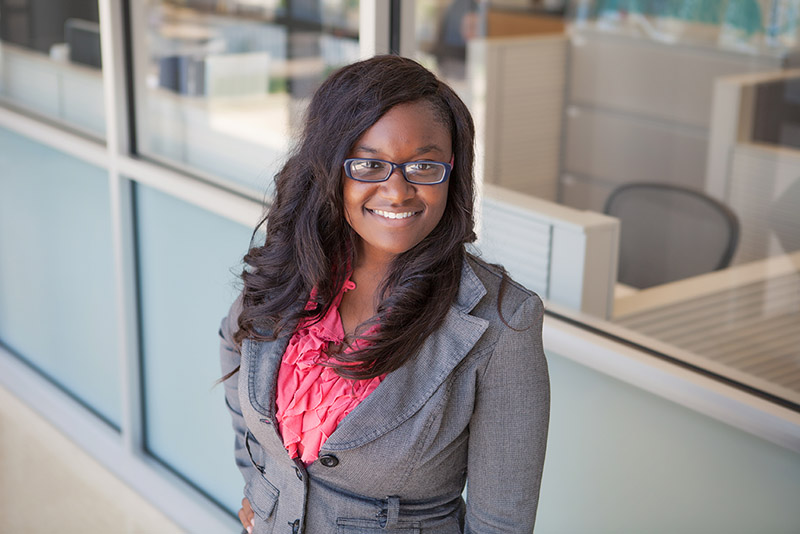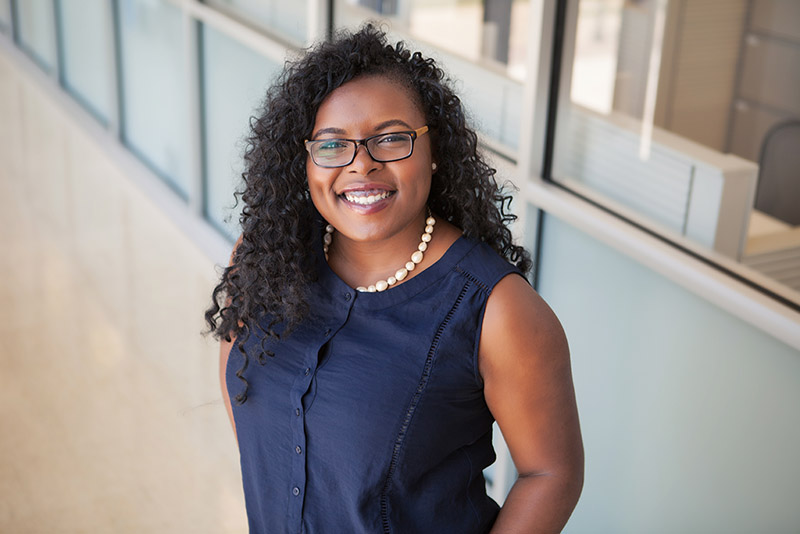The Knowledge Engine for Genomics (KnowEnG) Center at the Carl R. Woese Institute for Genomic Biology (IGB) at the University of Illinois is partnering with Fisk University in Nashville, Tenn., in an innovative program to promote diversity in the biomedical, behavioral, and clinical research workforce. The collaboration aims to prepare underrepresented minority undergraduates for entry into competitive M.D. or graduate programs by teaching them to apply computational thinking and statistical and informatics tools to address biomedical research challenges.
KnowEnG is part of the National Institutes of Health (NIH) Big Data to Knowledge (BD2K) initiative. NIH funds collaborations between institutions where the BD2K centers are located and institutions that serve students from backgrounds that are underrepresented in research. These collaborations emphasize reciprocal learning and experiential application at the intersection of computer science and biology, biochemistry, molecular biology, and mathematics relevant to biomedical research and operate at several levels.
One of the first two interns in the Fisk program, Shelby Clark plans to become a obstetrician/gynecologist and assist women in developing countries.
Fisk is a natural fit for such a program. As Lee Limbird, Dean of Fisk’s School of Natural Sciences, Mathematics and Business explained, “Fisk University has adopted a strategic STEM research and research training development plan that affirms the cross-disciplinary and enhanced quantitative and computational components of contemporary discovery. At Fisk, we have intentionally fostered an interdisciplinary research culture that crosses all of our STEM areas of biology, chemistry, biochemistry and molecular biology, computer science, mathematics, and physics/materials science.”
The partnership extends existing courses in bioinformatics and biocalculus at Fisk by broadcasting seminars taught at the U. of I. to Fisk students and faculty. Tools developed by the BD2K center are being integrated in Fisk undergraduate courses and course-associated laboratories in biology, chemistry, mathematics, and computer science.
“I am excited about this great opportunity for our students and faculty. Collaborating with UIUC, a leading biomedical Big Data research institution, will give our students a chance to do research with top-notch scientists in the area. The program will also improve biology, chemistry, computer science and mathematics curricula at Fisk and enhance research collaboration between Fisk and Illinois faculty,” said Lei Qian, an associate professor of computer science at Fisk.

Fisk intern Carleigh Frazier is working towards owning her own practice as a dermatologist and continuing research within her field.
For undergraduate training, students work on research projects during the academic year under the mentorship of Fisk faculty whose research aligns with the BD2K initiative. They also have the opportunity to do a summer internship with the High Performance Biological Computing (HPCBio) group at U. of I. Next year, Mayo Clinic, which is a KnowEnG partner, will also offer internships.
Carleigh Frazier and Shelby Clark were the first two Fisk interns to come to the U. of I. Frazier hopes to be a dermatologist and do research in her own practice. Clark wants to be an obstetrician/gynecologist helping women in developing countries. They both believe that what they learn through the program will help them in their future careers.
“I was really interested because it seems that computer science is everywhere,” Clark said. “I would have to know some computational technology if I want to be a doctor.”
“It seems like bioinformatics is a new frontier that’s growing and evolving and could have an impact on medicine in the future,” Frazier said.
Frazier and Clark are also participating in the Summer Research Opportunity Program (SROP) offered by the U. of I. Graduate College, which offers students from populations underrepresented in graduate study an opportunity to explore careers in research. SROP activities include writing workshops, GRE prep, and participation in research teams.
Fisk faculty benefit from the BD2K-Fisk collaboration as well. They have the opportunity to attend summer short courses in data carpentry and computational genomics at U. of I., which also allows them to establish collaborations that will provide them and their students with research opportunities, foster relationships, and work together on innovations in course design.
Ultimately, the collaboration partners hope to increase diverse participation in biomedical research discovery that relies on the use of Big Data through an evidence- and experience-driven program that will prepare rigorously trained and professionally confident minority trainees.
“Inherent in Fisk’s strategic focus is the realization that we need to transformall of our STEM courses to embrace Big Data and prepare our students for contributing to new knowledge deduced from Big Data in the future. Our collaborations with a broad swath of Illinois faculty as mentors for our facultyand our students and with the research core of the Carl R. Woese Institute for Genomic Biology are making it possible for a small liberal arts college to move beyond vision to implementation, and we are both excited and grateful,” said Limbird.
Written by:
Susan Jongeneel. Photos by Kathryn Faith.

